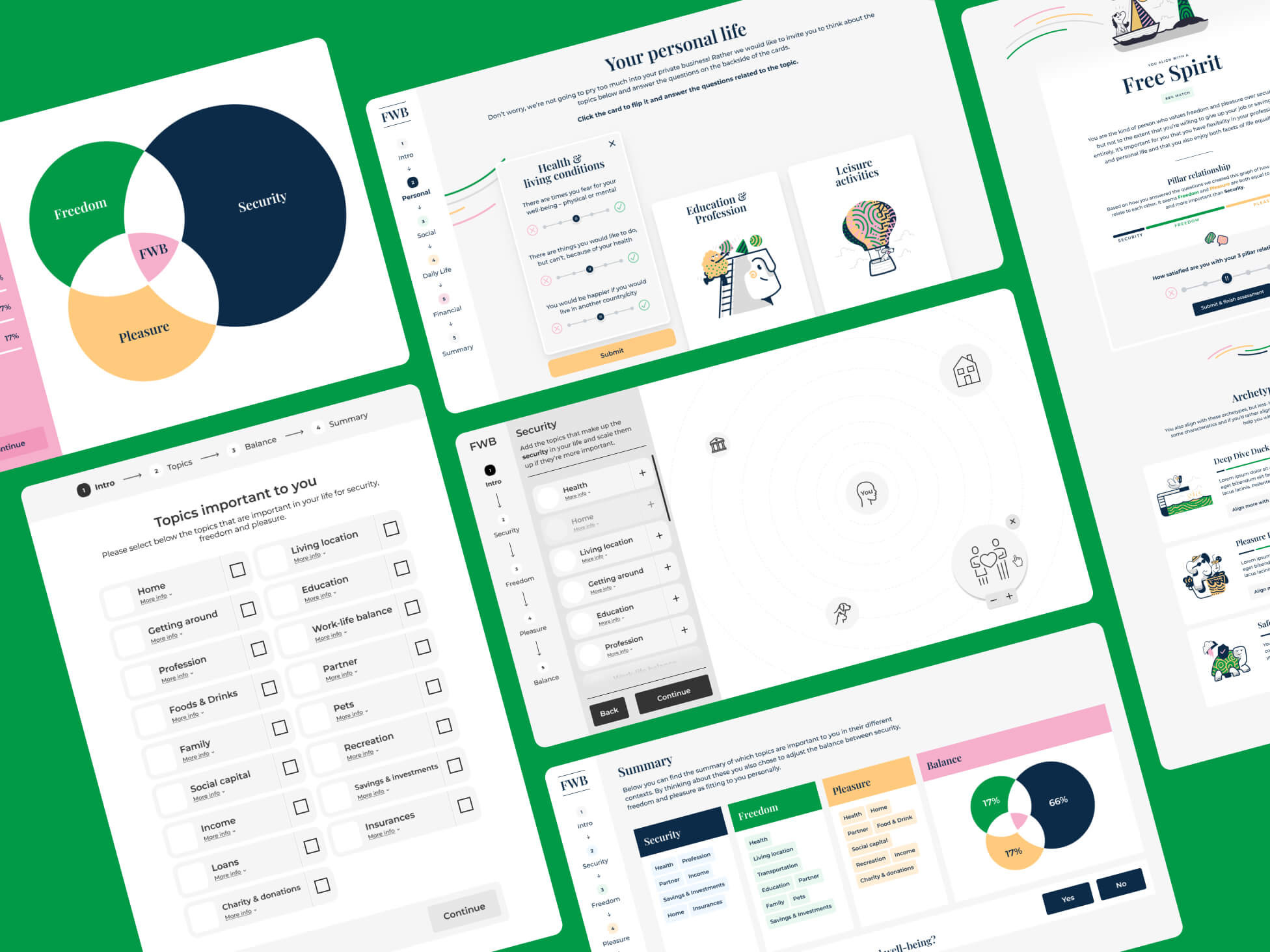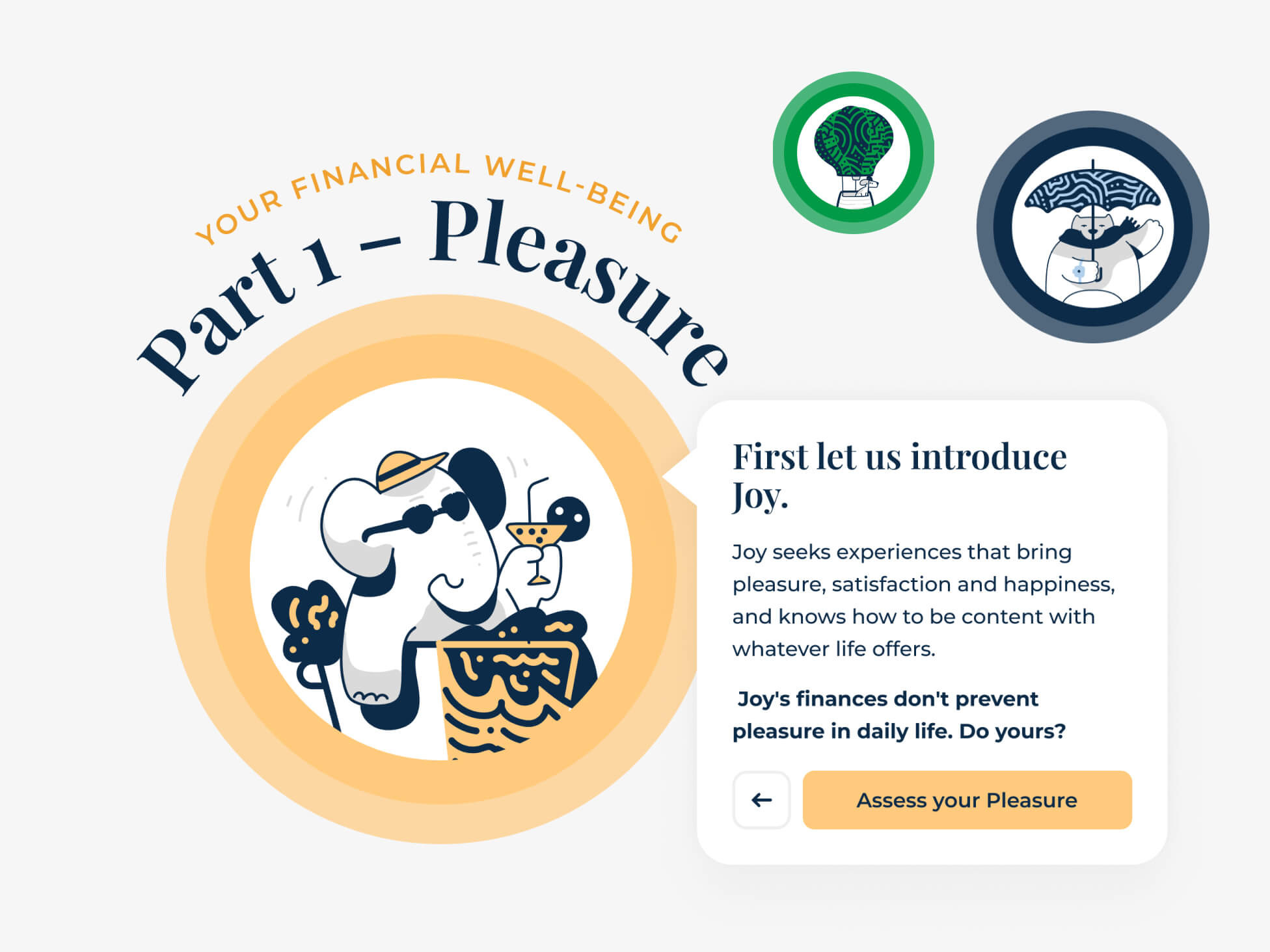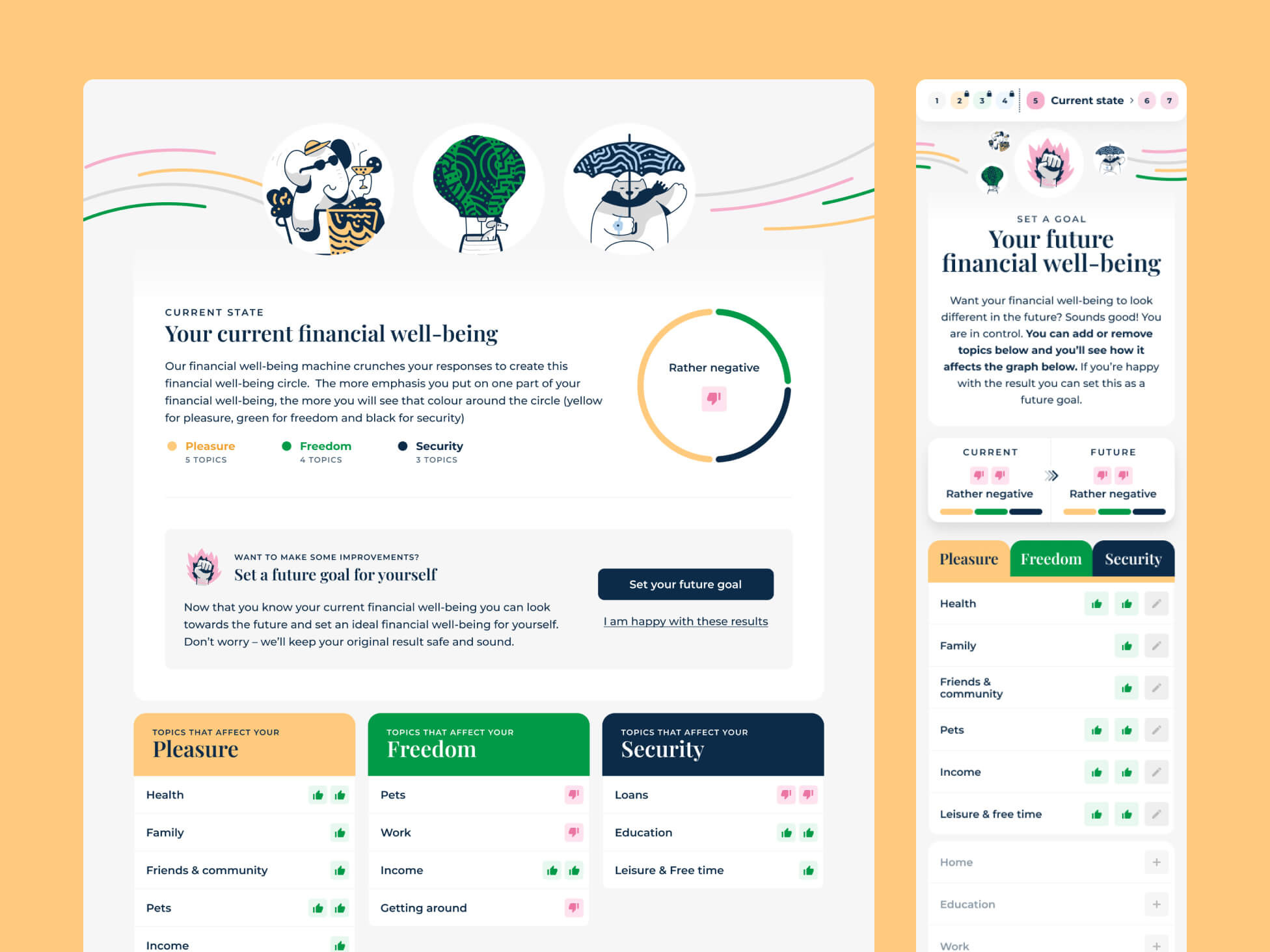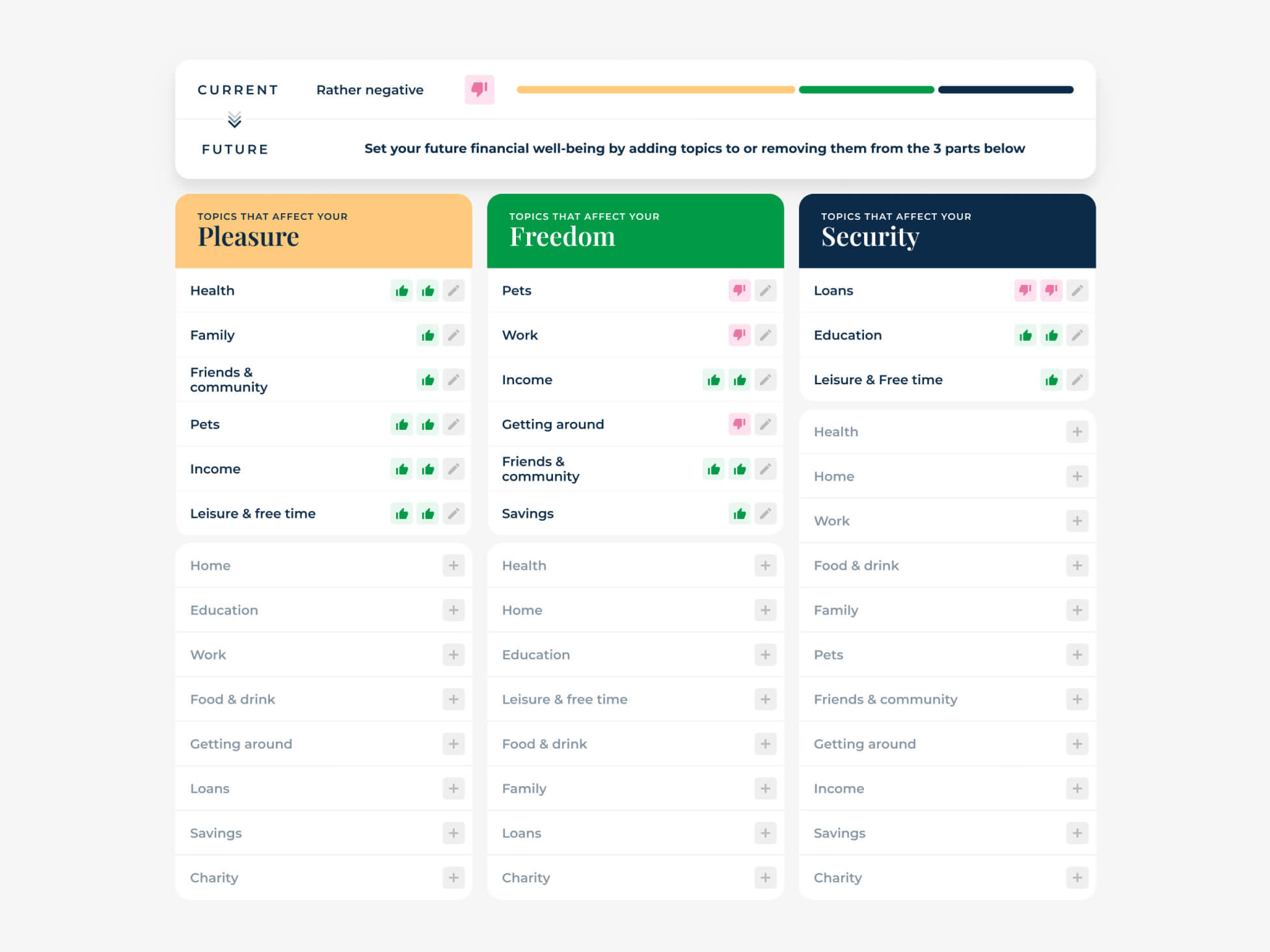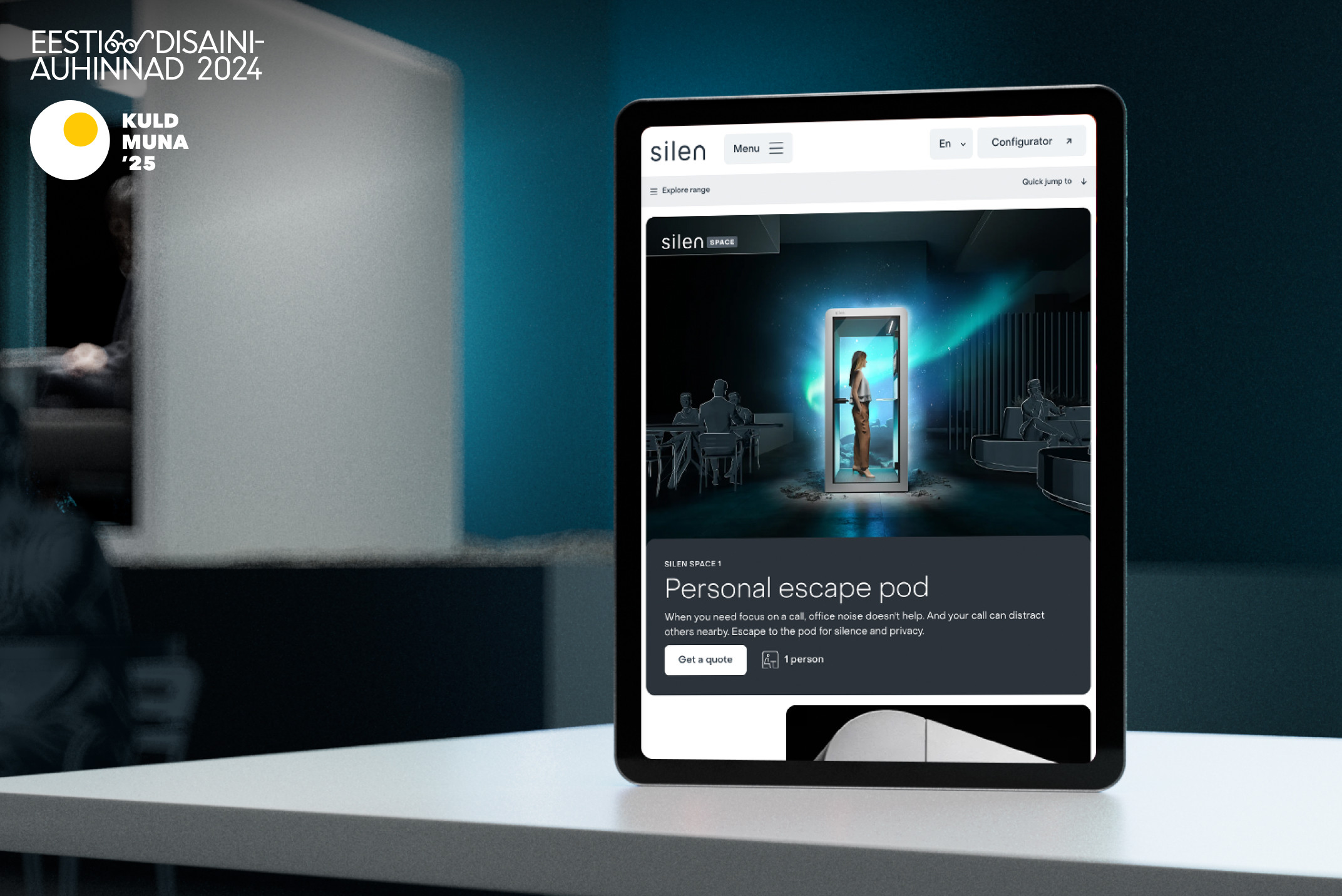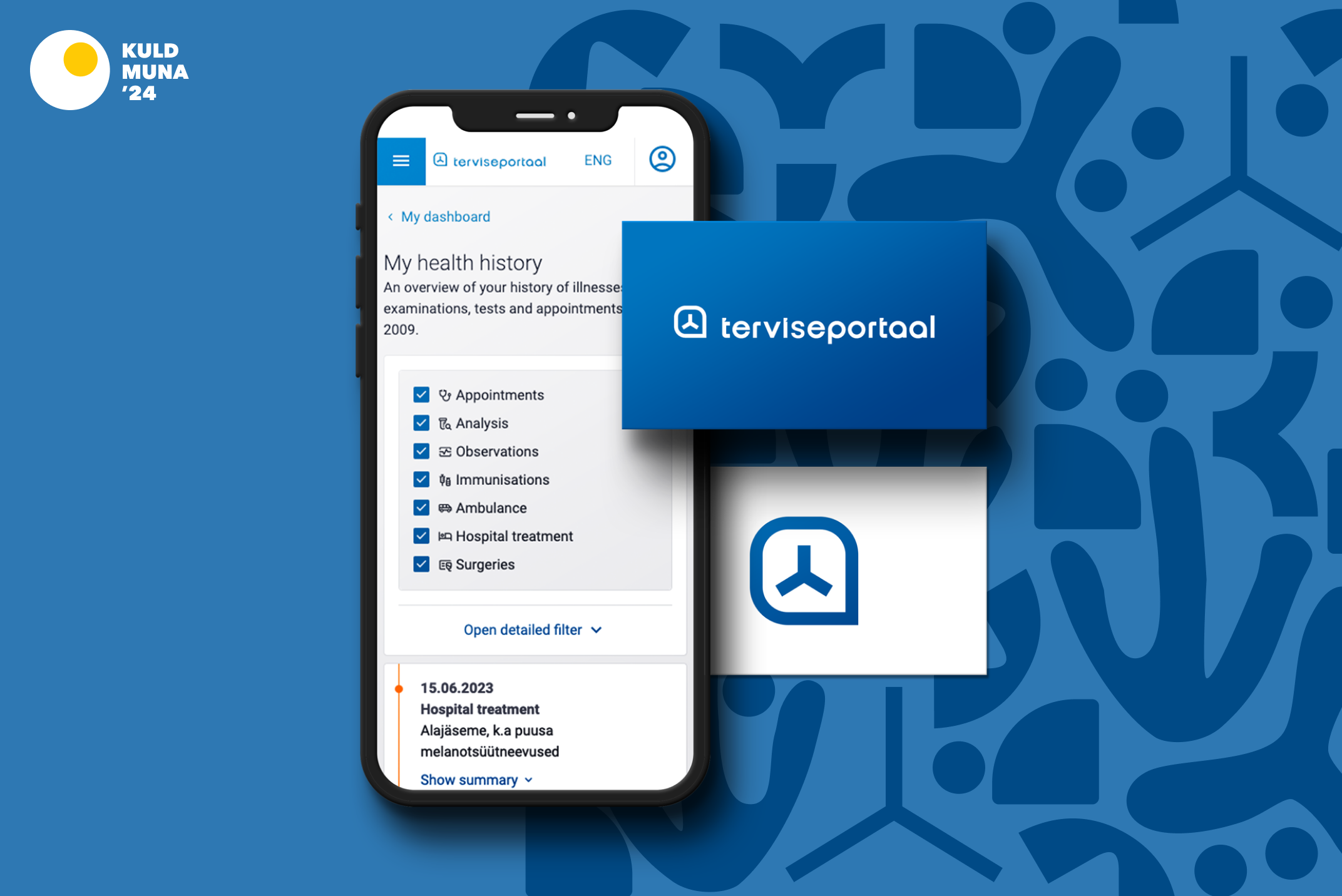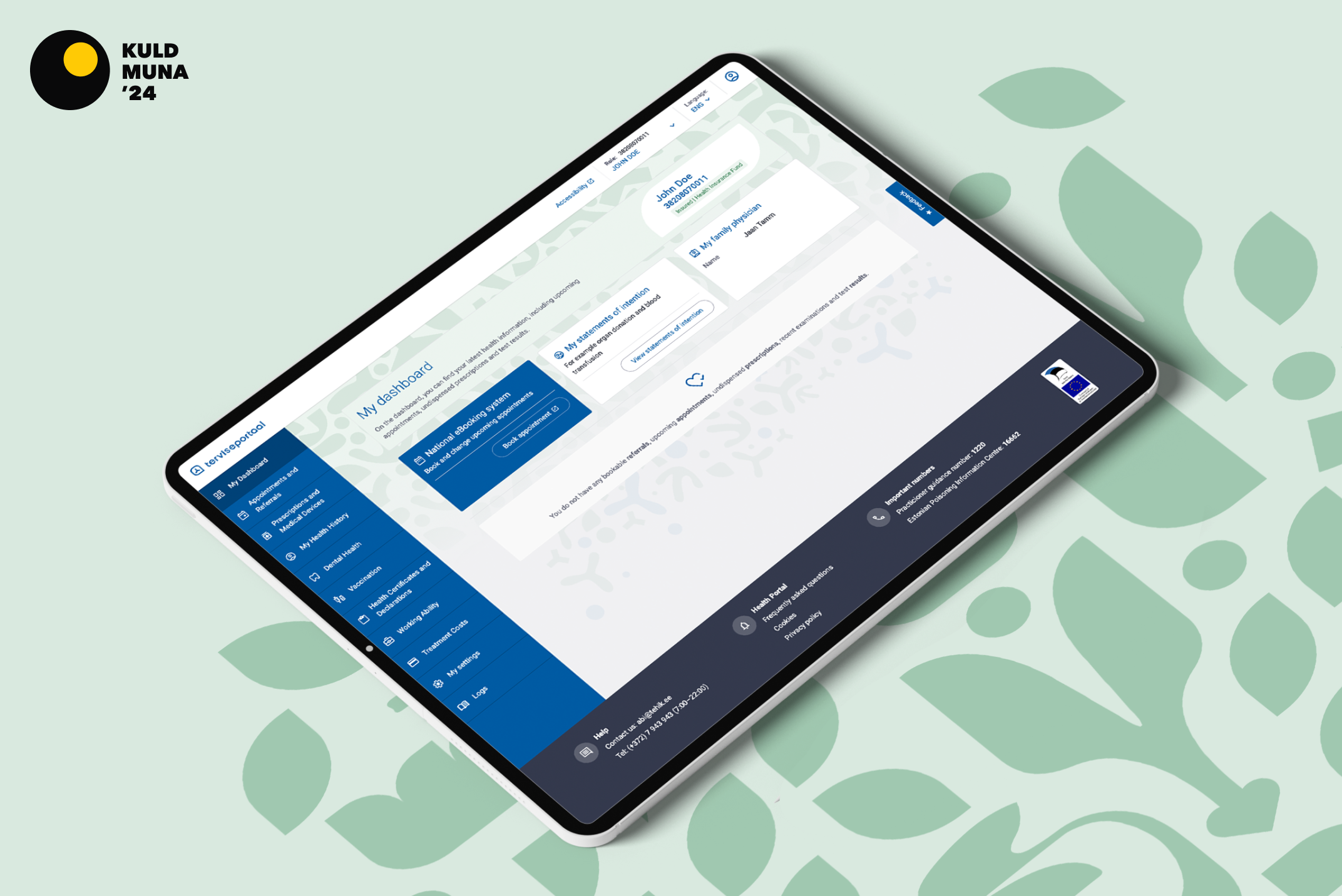Financial Well-Being Assessment Tool '2024
For the last 3 years, Leonore Riitsalu and her research team (Adele Atkinson, Kristiina Vain, Rauno Pello and Mihkel Solvak) have been researching the multifaceted ways in which financial well-being is intricately linked to various aspects of subjective well-being. They analysed 600+ interviews and developed a new measure that assesses its three components: Pleasure, Freedom and Security.
Rather than asking people to fill in a questionnaire – which more often than not asks the user to fill in data in text fields and ends up with an abstract score no one really understands – we wanted to create an engaging self-assessment tool which educates the user on these 3 elements. This is not a tool we want users to go through as fast as possible. If anything the journey is more important than the destination, so we designed it in such a way that this journey becomes interesting and one would take a moment to think.
Goals
Creating a self-assessment tool that would enable the research team to gather data on their hypotheses of the 3 components which make up financial well-being.
Making an engaging and educational tool that empowers the participants to think about how to assess their own current financial well-being within the context of the three components (Pleasure, Freedom and Security).
Partners
Raik Ilves – Engineering
Research in collaboration with
University of Tartu – Johan Skytte Institute of Political Studies
Erste Foundation
Finding a not-so-boring approach
After a couple of initial workshops where we analysed the needs and wants from the research team, we quickly started to understand that this was going to be a challenging project. With the three components (Pleasure, Freedom and Security) at the basis of what constitutes as financial well-being, the questions we would ask from the participant would have to reflect the contexts these three components create.
Through an iterative process and together with the team we came up with different approaches on how to solve this.
Wheel of topics
The wheel of topics is a recurring interactive element in each step and while the topics are always the same, the context changes according to the three different components. This way the questions related to the topic take on a slightly different nature. Owning a home might give you financial security, but jeopardises your financial freedom.
Because the answers to the questions can be interpreted in different ways and are – in essence – subjective, we wanted to limit the way how the user answers in order to still gather understandable and manageable data for the research team to analyse.
The guides
Our initial user testings found that people quickly caught up with the idea of the wheel and started to think about these topics differently within the different contexts. In order to emphasise these different contexts we also connected them with “the guides”.
So in each step there’s a guide who establishes the context of how to think about the questions in Pleasure, Freedom and Security. The guides also inject the tool with some fun, since not every financial assessment tool needs to be a boring questionnaire ;)
Not a result, but a summary
At the end you get an overview of your current financial well-being state. A moment to reflect and if you’d like, you can also set a plan towards your future financial well-being.
When you make a plan and change your topics from negative to positive, this is again a moment to think about how you would achieve this and what the future might hold. Maybe you’ll pay off some loans or plan on expanding your family. How will this affect your financial well-being?
We'd love to hear from you
Drop us a line —hello@dux.ee
Or give us a call
—+372 505 9146
